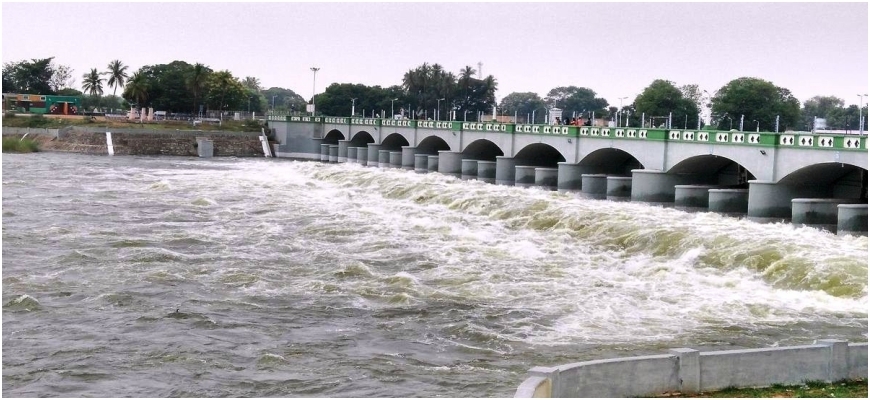Court will ensure that Tamil Nadu gets its share of Cauvery Water: CJI Deepak Misra
Chennai, April 2: Supreme Court will ensure that Tamil Nadu will get its share of Cauvery Water, assured Chief Justice Deepak Misra. Today SC agreed to hear a contempt plea of TN government against the Centre for not constituting the Cauvery Management Board (CMB). The court has scheduled the case for hearing on April 9.

A Bench led by Chief Justice Misra agreed to hear the State's plea to initiate contempt proceedings against the Central government for its “willful disobedience” of the February 16 court judgment in the Cauvery dispute mandating it to frame a scheme for allocation of the river water among Tamil Nadu, Karnataka, Kerala and Puducherry.
The contempt petition wants the apex court to “purge the contempt forthwith” by directing the Centre to frame a scheme by providing for a Cauvery management board and a Cauvery water regulation committee as per the Cauvery Water Disputes Tribunal’s order of 2007.
As per the February 16 judgment, the Centre had to frame a scheme in six weeks. The deadline ended on March 29. On the eve of the deadline, the Centre moved the Supreme Court for a three-month extension for the implementation of the court order.
What is Cauvery Water Dispute?
The Cauvery River originates in Karnataka’s Kodagu district, flows into Tamil Nadu and reaches the Bay of Bengal at Poompuhar. Parts of three Indian states – Tamil Nadu, Kerala, and Karnataka – and the Union Territory of Pondicherry lie in the Cauvery basin.
Initially, the dispute was between Karnataka and Tamil Nadu but later Kerala and Puducherry also entered the dispute.
The Cauvery dispute started in the year 1892, between the Madras Presidency (under the British Raj) and the Princely state of Mysore when they had to come to terms with dividing the river water between the two states. According to the 1892 and the 1924 agreements the river water is distributed as, 75% with Tamil Nadu and Puducherry, 23% to Karnataka, remaining to go to Kerala.
In the year 1910, both states started planning the construction of dams on the river. Further, in 1924, Britishers presided an agreement was signed between the two states where the rules of regulation of the Krishnarajsagar dam. Hence, the 1924 agreement gave both the Madras presidency and the Mysore state rights to use the surplus waters of the Cauvery. Madras had objected to the construction of the Krishnasagar dam and hence the agreement gave them the liberty to build the Mettur dam. However, the agreement also put restrictions on the extent of area irrigated by Madras and Mysore using the river water.
The late 20th century, Tamil Nadu opposed the construction of dams on the river by Karnataka, and the state in turn wanted to discontinue the water supply to Tamil Nadu moreover, pointed that, 1924 agreement had lapsed when its 50 years were up in 1974 and considering that the river originated in Karnataka, they had better claim over the river. They argued that they were not bound by the agreement struck between the British Empire and the Maharaja of Mysore.
In 1990 that the Cauvery Water Disputes Tribunal was set up.
The tribunal mandated Karnataka to release 192 TMC feet of water every water year i.e. between June and May.However, the verdict also stated that during poor monsoon the states must share water distress in the same proportion.
Tamil Nadu contended that even if it was to accept the Karnataka stand that due to deficient rainfall in the current year, the inflow of water into four major reservoirs in the State is less, the same (shortfall in inflow of water into the reservoirs) could not have been more than 28%.
Further Supreme Court directed that the Karnataka government must release 15,000 cusecs of Cauvery river water every day to Tamil Nadu for next 10 days to meet the demands of the summer crop in the state, along with due consider the impact of non-availability of required water on the summer crops and the plight of farmers.